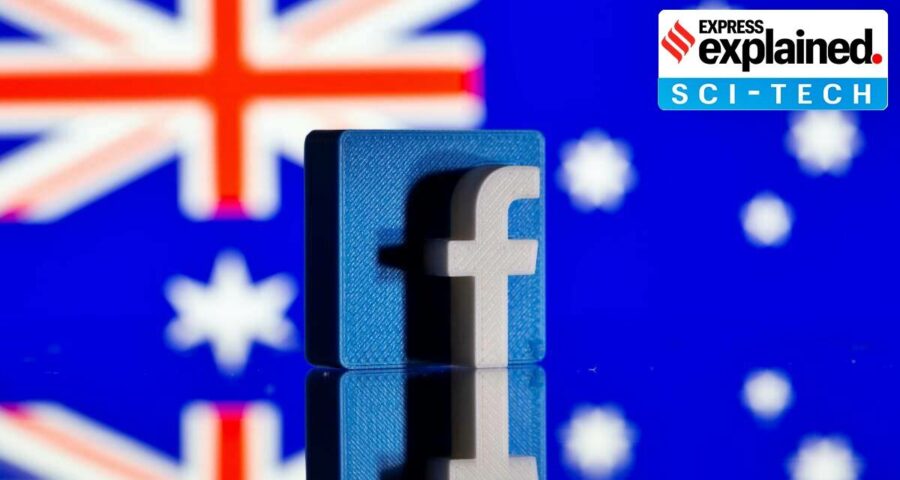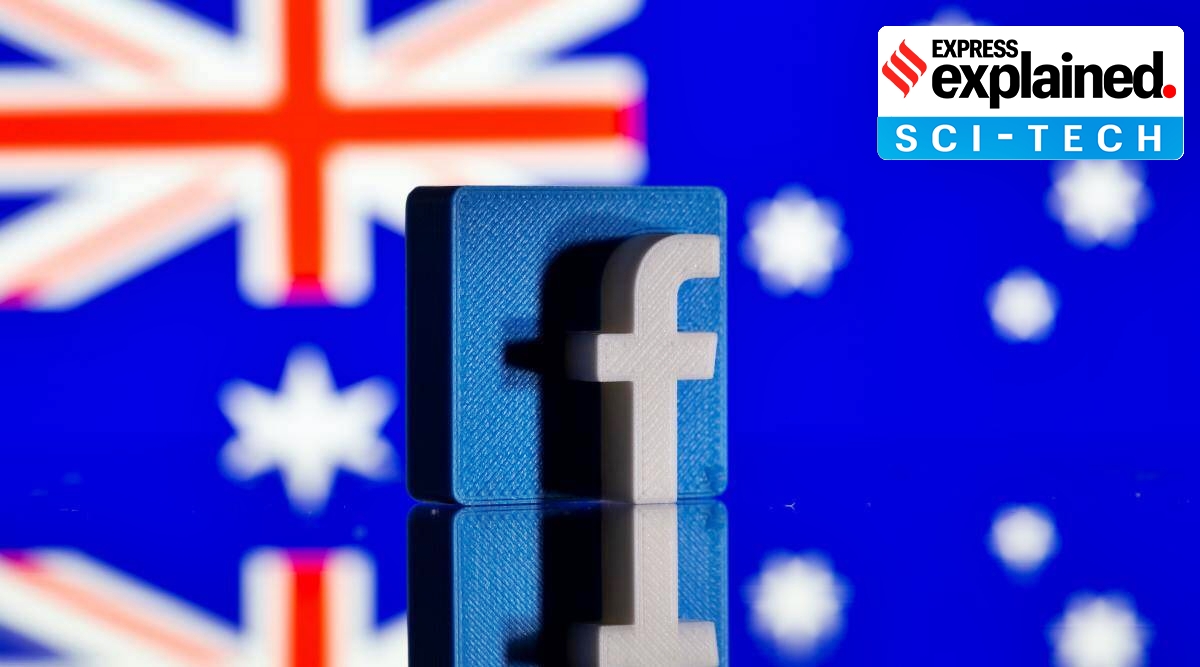Australian PM Morrison has called Narendra Modi, widening efforts to drum up support for his media code that seeks to make Big Tech pay for content. What's at stake; what lies ahead?
Australia’s Prime Minister Scott Morrison said in a tweet on Friday that he had spoken to Prime Minister Narendra Modi the previous day on a range of issues, and also “discussed progress of our media platform bill”.
Morrison has launched a global diplomatic offensive to drum up support for Australia’s proposed law to force Internet giants Facebook and Google to pay media companies for the news content that is published on their platforms. He is learnt to have reached out to Canada’s Prime Minister Justin Trudeau as well.
Initiative and pushback
The proposed law, News Media and Digital Platforms Mandatory Bargaining Code Bill 2020, mandates a bargaining code that aims to force Google and Facebook to compensate media companies for using their content. The legislation sets a precedent in regulating social media across geographies, and is being closely watched the world over.
Australia’s opposition Labour supported the Bill in the House of Representatives on Wednesday, paving the way for it to clear the Senate and possibly become law soon.
Meanwhile, even as Google moved to sign a deal with Rupert Murdoch’s News Corp, Facebook — which has 17 million users in Australia — retaliated with a news blackout, blocking all news links on its platform beginning Thursday. In the process, it also ended up silencing some emergency services, and reportedly removed posts from Australia’s Bureau of Meteorology, state health departments, fire and rescue services, charities, and emergency and crisis services.
“They may be changing the world, but that doesn’t mean they should run it,” Morrison said of the big tech firms in a Facebook post on Thursday. “We will not be intimidated by this act of bullying by BigTech, seeking to pressure parliament as it votes on our important News Media Bargaining Code… I am in regular contact with the leaders of other nations… We…won’t be intimidated, just as we weren’t when Amazon threatened to leave the country and when Australia drew other nations together to combat the publishing of terrorist content on social media platforms.”
The Sydney Morning Herald reported that in his conversation with Modi on Thursday, Morrison “raised concerns about Facebook and its power when the company is seeking help from the Indian government in a huge market”.
Australia’s legislation
Back in 2017, the Australian Competition and Consumer Commission (ACCC) recommended a voluntary code with an aim to address the negotiating skew between major digital platforms and media businesses. Based on these recommendations, the Australian government in 2019 asked various stakeholders and the ACCC to develop this voluntary code.
The ACCC, however, pointed out in April 2020 that the businesses were not likely to reach an agreement voluntarily. The government then asked it to draft a mandatory code. The draft law was released in July, and the government subsequently introduced the Bill after carrying out some significant amendments.
The provision requiring Google and Facebook to enter into payment negotiations with media companies — with an arbiter mandated to adjudicate if no agreement is reached — or face heavy fines, has met with resistance. The arbiter is deemed important mainly for smaller publishers who may face a negotiation skew with the platforms.
Also, while the original code envisaged limiting tech platforms from introducing algorithm changes that affected how a particular publisher’s news is consumed, and notifying these changes to the publishers, the Bill has cut down on the changes that have to be notified to news providers. This opens up the possibility of disrupting the level playing field between small and large news organisations.
In January, Google threatened to remove its search engine from Australia, and Facebook warned it could block Australian users from posting or sharing news links. Google has now backtracked — but the basic argument of both companies is that the media industry was already benefiting from traffic routed to them by the digital platforms, and that the proposed rules would expose the Internet companies to “unmanageable levels of financial and operational risk”.
Big Tech strategy elsewhere
Media outlets have reported that Facebook plans to launch its news tab feature (available in the US since 2019) in the UK, with likely tie-ups with The Guardian, The Economist, and The Independent. And that Google is rolling out its news offering platform, Google News Showcase.
Both these platforms aim to formalise payment pacts with news outlets. In a statement last month, Google said that News Showcase — which features story panels that allow participating publishers to package the stories that appear within Google’s news products — has on board more than 450 publications in a dozen countries, including Le Monde, Le Figaro, and Libération in France; El Cronista and La Gaceta in Argentina; TAG24 and Sachsische Zeitung in Germany; and Jornal do Commercio in Brazil.
Google has said it will pay news publications in France for using their content online. However, its first response to France adopting the EU copyright rules was to stop displaying news snippets — until the French competition regulator stepped in, in October last year. Google also pulled its Google News service in Spain, which made payments to publishers mandatory. In Australia, Google seems to have opted for a more conciliatory position, even as Facebook has decided to go on the offensive.
The core issue
Paying for news feed in itself appears to be less of an issue for the tech giants, given that Google agreed to pay news publications in France just hours before threatening to remove its search functions in Australia. The fight in Australia is in fact, centred on how much control these companies would be able to retain on their payout process — operational aspects such as deciding the quantum of payments for news feed sources, and having to reveal changes in their algorithms.
European authorities have specifically linked payments to copyright, without putting a forcing device into the agreements. Australia’s code, on the other hand, is almost entirely focused on the bargaining power of news outlets vis-à-vis the tech majors, and has some coercive features as well. It is more of a competition issue in Australia, of power equations between traditional news outlets and tech platforms, with the question of abuse of dominance by the latter hanging in the balance.
The debate in India
Policymakers in India have so far focused on the dominance of intermediaries such as Google and Facebook, which are positioned in a way that service providers cannot reach customers except through these platforms. A substantial discussion on the impact of intermediary platforms on the health of news media outlets is yet to begin in any meaningful way.
According to a FICCI-EY report for 2020, there are 300 million users of online news sites, portals and aggregators in the country — making up approximately 46% of Internet users and 77% of smartphone users in India at the end of 2019. With 282 million unique visitors, India is the second largest online news consuming nation after China. In India, digital advertising spends in 2019 grew 24% year-on-year to Rs 27,900 crore, according to EY estimates, and are expected to grow to Rs 51,340 crore by 2022.
Dailyhunt and InShorts are the other major news aggregators in India. According to a January 2020 report by Harvard University’s Nieman Lab, publishers were initially paid Rs 5-6 lakh monthly for content hosted on Dailyhunt — but they started to go off the platform after these terms were changed. Even without the conversation in India reaching the point where news aggregators are mandated to make payments to publishers, startups such as Dailyhunt and InShorts are yet to find a sustainable revenue model.
Source: Read Full Article


